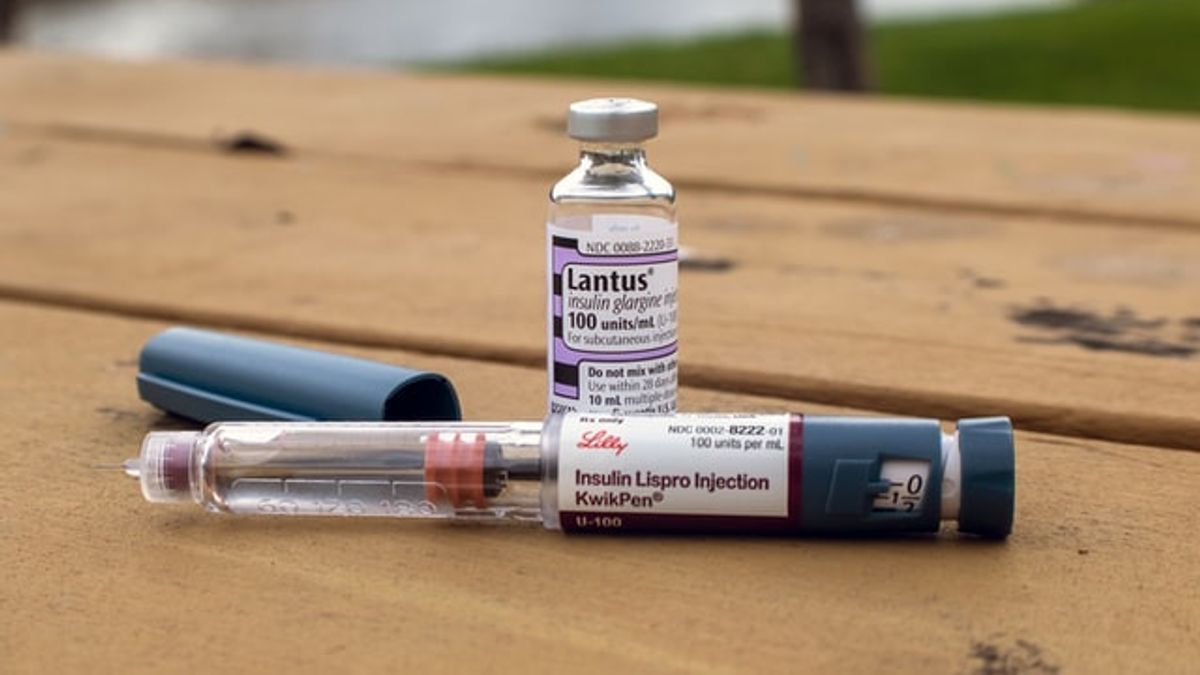JAKARTA - Diabetes is one of the most common health problems in the world. At least, there are about 8.5 percent of adults worldwide living with the condition. Even though it sounds familiar, you don't necessarily know very well about type 2 diabetes.
Being the most common disease causes researchers to increase research related to diagnosis, treatment, to knowledge about type 2 diabetes, thus enabling better prevention and treatment.
Adapting the Healthline page, Monday, December 27, there are at least five important things that people need to know about diabetes. The goal is simple: the more you recognize diabetes, the easier it will be to avoid this disease.
Type 2 diabetes is a chronic condition and there is no cure to date
Simply put, diabetes is a condition that occurs when your body has problems managing blood sugar levels. This is due to the body's inability to make or use insulin, the hormone that regulates blood sugar. Either your body doesn't produce enough insulin or your cells are too resistant to use insulin effectively.
If the body can't use insulin to manage glucose, these simple sugars build up in the blood, causing high blood sugar levels. As a result of cellular resistance, various cells in your body will not get the energy they need to function properly, leading to further health problems.
For this reason, diabetes can be categorized as a chronic disease that may last a long time. Until now, there is no drug that can really cure type 2 diabetes, so it takes accuracy in maintaining health and drugs to maintain blood sugar levels.
Diseases on the rise especially in young people
The number of people with diabetes worldwide has increased from 108 million in 1980 to 422 million in 2014 with type 2 diabetes being the most common. According to the World Health Organization (WHO), type 2 diabetes only affects adults. But now it is diagnosed more often in young people. This is likely because type 2 diabetes is linked to a higher body mass index (BMI) and obesity, a common problem among young people today.
Can go undiagnosed for several years
Many cases of type 2 diabetes go undiagnosed because of a lack of symptoms or because people don't recognize it as signs of diabetes such as fatigue and increased hunger and thirst. For this reason, WHO recommends that adults aged 45 years or older should be tested for diabetes, especially if they are obese.
Can cause serious complications
If left undiagnosed and untreated for too long, type 2 diabetes can lead to life-threatening complications. The same is true for people who fail to manage diabetes properly. Cardiovascular disease, diabetic eye disease, kidney disease, nerve damage, hearing damage, and an increased risk of stroke and Alzheimer's disease are some of the major complications that people with type 2 diabetes face. Maintaining blood sugar, cholesterol, and blood pressure levels is very important in lowering these risks. Early detection and treatment, a healthy lifestyle, and regular check-ups are the keys.
SEE ALSO:
Type 2 diabetes can be prevented by adopting a healthy lifestyle
One of the most important things you can do to manage type 2 diabetes is to eat well and exercise regularly. Because experts know for certain that certain factors increase your risk, they also know that there's a good chance you can prevent it or at least delay its onset. Some basic things you can do to help prevent and/or manage type 2 diabetes include:
- Maintain an ideal body weight
- Do 30 minutes of regular, moderate-intensity physical activity every day, or vigorous exercise 3 days a week.
- Limit sugary drinks and saturated fat in your diet. Add more fruits and vegetables, and get rid of processed foods.
- Avoid tobacco use, which increases the risk of diabetes and cardiovascular disease.
- Check your blood sugar regularly if you have been diagnosed, and maintain proper foot, kidney, blood vessel, and eye care to prevent complications.
The English, Chinese, Japanese, Arabic, and French versions are automatically generated by the AI. So there may still be inaccuracies in translating, please always see Indonesian as our main language. (system supported by DigitalSiber.id)


















